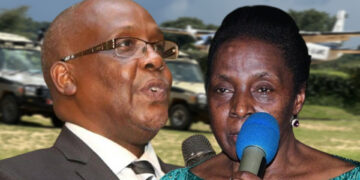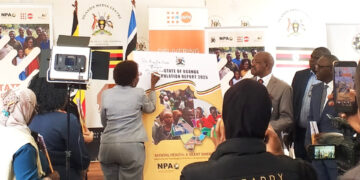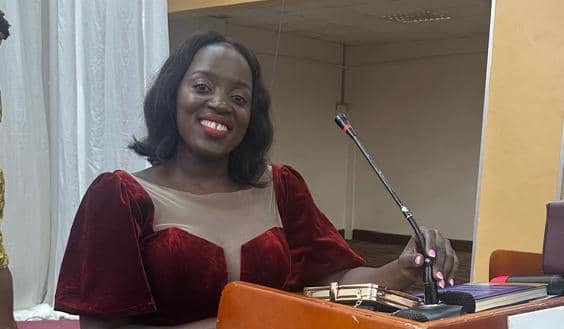KAMPALA
On October 7, women leaders from various sectors across the country convened at Hotel Africana in Kampala for the 9th Annual Women’s Forum, an event organized by the Uganda National Prayer Breakfast.
This year’s forum brought together women in politics, business, faith, academia, and civil society to deliberate on the theme: The Power of Forgiveness and Reconciliation. The discussions centered on empowering women to actively participate in governance, policy formulation, and community transformation.
It’s not a public secret that across the world, the face of leadership is changing. From corporate boardrooms to national parliaments, more women are stepping into positions of influence, challenging stereotypes, breaking barriers, and inspiring a new generation of girls to dream boldly. Yet, the journey to gender equality in leadership remains a work in progress, as Rosette Nantumbwe, an Administrator at East African Dream Program, and participant at the Forum explained.
“Women encounter limiting societal norms and gender stereotypes that define roles and expectations, such as the challenges of balancing work and family life, motherhood penalty widens the gender pay gap,” said Nantumbwe.
With fewer women in senior roles, role models and sponsors to mentor and advocate for women advancement, Nantumbwe highlights challenges in career growth and increased gender imbalances.
But, there’s always room for breaking the glass ceilings. For centuries, leadership has been largely defined by male-dominated systems. Women who aspired to lead often faced not only professional barriers but also deep-rooted cultural expectations about their roles.
Civilized women like Nantumbwe acknowledge the significance of advocacy, education, and policy reforms, which they say are helping women to steadily dismantling the so-called “glass ceiling.” Their rise to leadership is a testament to resilience, education, and determination.
From corporate executives like at the IG, Uganda Airlines, KCCA, DPP, to political trailblazers like Rt. Hon. Robinah Nabbanja, Uganda’s first female Prime Minister, Rt. Hon. Annitah Annette Among – Speaker of Parliament to mention but a few, women leaders are proving that inclusivity drives innovation and progress.
The women leader (Nantumbwe) proposes for full participation in women’s development programs such as formal training, mentorships and coaching, noting that such programs can build capabilities like communication, confidence, strategic and analytical thinking among women.

According to her, women bring unique perspectives to leadership, she stresses the critical need of involving more women in leadership spaces not only in politics but also in other spheres of leadership. She argues that women’s leadership styles are often grounded in empathy, collaboration, and vision which have redefined what effective leadership looks like in the 21st century.
“Women leaders foster greater collaboration by uniting diverse groups around common goals whc enhances employee engagement, morale and productivity,” says Nantumbwe.
Studies consistently show that when women are involved in decision-making, communities thrive. Companies led by women record higher employee satisfaction and improved organizational performance. Further studies have revealed that women in politics are more likely to champion issues related to education, healthcare, and social welfare, areas that directly improve the quality of life for citizens.
In African contexts, where women play vital roles in families, agriculture, and community development, their representation in leadership is not just a matter of equality; it’s an economic and social necessity: “A society that sidelines its women limits its own potential.”
Despite progress, women leaders continue to face structural and cultural challenges. Gender bias, unequal access to financing, limited mentorship opportunities, and societal stereotypes still hinder women’s advancement. In some regions, patriarchal traditions and political systems make it difficult for women to be taken seriously as decision-makers.
Moreover, women in leadership often face double scrutiny judged more harshly than their male counterparts for the same actions.
“Balancing professional roles with family expectations adds another layer of pressure,” said Nantumbwe.
She called for deliberate actions to promote women in leadership. Participants called on governments, institutions, and communities to create environments where women can thrive, through mentorship, affirmative action, gender-sensitive policies, and access to education, financial and professional resources.
“Empowering women to lead is not about replacing men, but about creating balance where diverse voices contribute to more thoughtful, equitable, and sustainable decision-making,” participants urged.
As the world faces complex social and economic challenges, inclusive leadership, where women and men work side by side, the forum argues that promoting women participation in leadership is not just the right thing to do, but it’s the smart thing to do.








































